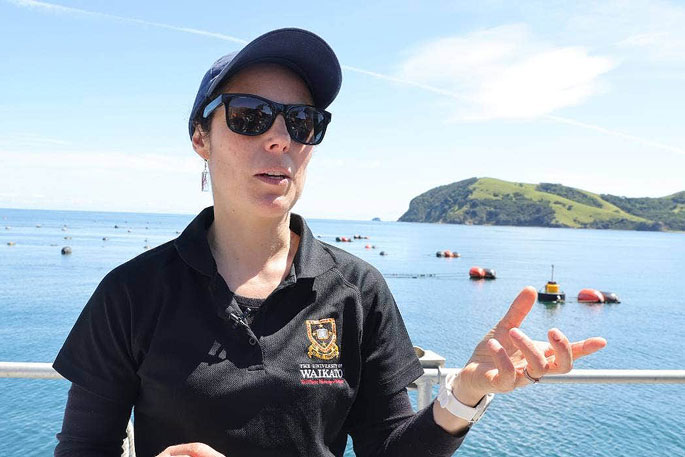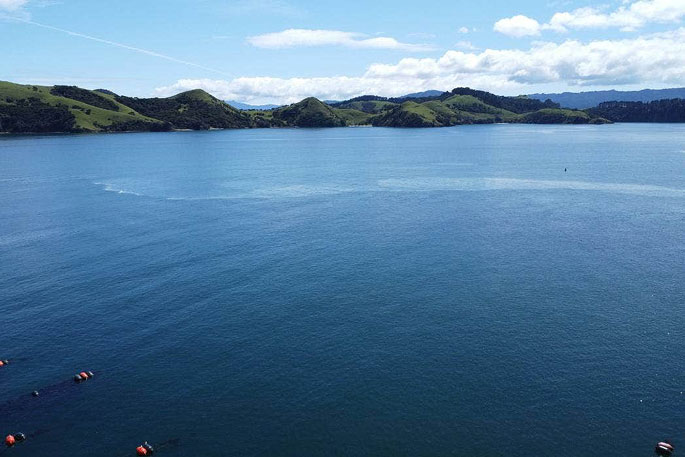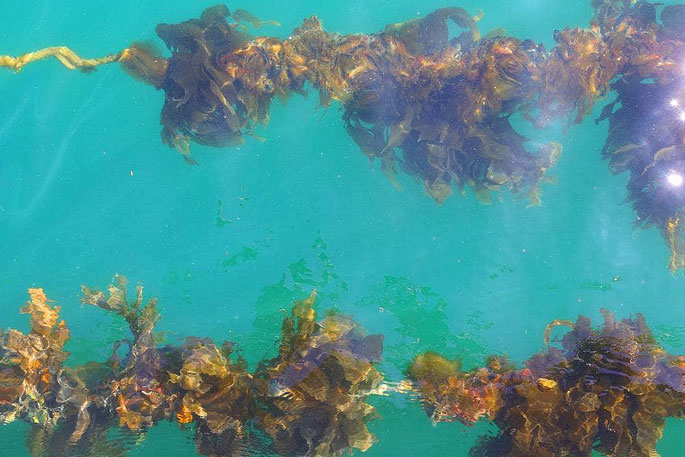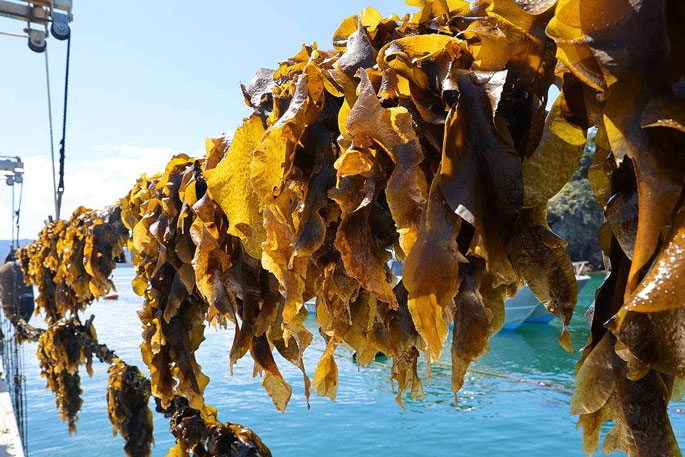New Zealand's first planting of hatchery grown seaweed in Coromandel waters could be the beginning of a new sector for the aquaculture industry.
Over the last year, marine ecologists have been growing Ecklonia radiata seaweed collected from the wild, in a hatchery in Tauranga, as part of EnviroStrat's $5 million regenerative ocean farming pilot.
Seaweed has many health benefits and can be used in everything from pharmaceuticals, beauty products to wound care and plastics.
Now around 220 metres of the tiny native seedlings have been planted in waters off the Coromandel coastline in the Hauraki Gulf, with more to be planted in the coming months.
It's an historic moment that could lead to the creation of a billion dollar industry in New Zealand, says EnviroStrat CEO Dr Nigel Bradly.
'This is the first time in New Zealand that we've had Ecklonia grown in a hatchery and put onto a farm.
"What we are seeing now, is hopefully, the start of something really exciting, where we're able to create a supply chain for existing marine farming."
Sustainable Seas National Science Challenge estimated the global seaweed sector to be worth nearly $20.5 billion.
Seaweed production has tripled over the last two decades and now makes up a third of all aquatic farming.
 University of Waikato researchers Dr Rebecca Lawton said it's really exciting that they are at the planting stage after years of research.
University of Waikato researchers Dr Rebecca Lawton said it's really exciting that they are at the planting stage after years of research.
By creating an economically viable seed-to-harvest model for seaweed farming, Bradly said, New Zealand has the ability to produce 'high end seaweed products” on a large scale for the international stage.
The three-year pilot project is led by natural resource sector project developer EnviroStrat, in collaboration with Ngāti Pūkenga, Ngāi Tai ki Tāmaki, seaweed product developer Premium Seas, the Universities of Waikato and Auckland and seaweed processor AgriSea.
It will eventually see a total of 36km of seaweed planted in Tauranga and Coromandel over the next year 'piggy backing off of muscle farms”.
 Sustainable Seas National Science Challenge estimated the global seaweed sector to be worth nearly $20.5 billion.
Sustainable Seas National Science Challenge estimated the global seaweed sector to be worth nearly $20.5 billion.
The brown kelp is an important species in the ecosystem and has never been harvested from the wild until now, says Waikato University marine ecologist Dr Rebecca Lawton.
The tiny seedlings, wrapped around twine, will be hung six metres from the surface eventually growing to their full size, she says.
'We will be outplanting every month for a whole year... with 24km of it going in Coromandel waters.”
From this pilot they will be able to figure out the best time to plant seaweed and maintain it in the hopes of 'scaling up to another level”, says Rebecca.
This could also lead to the development of machinary that can machinically wind the seaweed around the rope instead of people doing it by hand.
'What's really exciting for us is that we all see so much potential in what seaweed can do for the environment and our economy, so it's really exciting to get to a stage we're not just talking, but actually taking the next step.”
Premium Seas CEO Lucas Evans says the opportunities will be endless for the sector – with one of his own products being used in a L'Oreal face cream.
He moved from Australia 10 years ago to get behind New Zealand's emerging seaweed industry and now owns one of New Zealand's largest seaweed manafacturers.
 The rows of seaweed will be planted in the same area as the muscle farms in Coromandel.
The rows of seaweed will be planted in the same area as the muscle farms in Coromandel.
'It's a pinch me moment for everyone involved,” says Evans.
While it's still early days, he said, the pilot it's proving that large scale farming can be done in New Zealand.
'It's really important to the growth of New Zealand's seaweed industry and once we establish this species we will be able to move on the other species.”
'There's many layers that people can participate in within the sector, from the farmer to the process through to the marketers and retailers.”



0 comments
Leave a Comment
You must be logged in to make a comment.